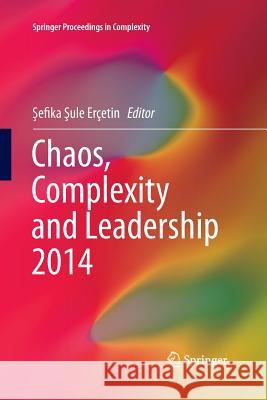Chaos, Complexity and Leadership 2014 » książka
topmenu
Chaos, Complexity and Leadership 2014
ISBN-13: 9783319361864 / Angielski / Miękka / 2016 / 519 str.
Kategorie:
Kategorie BISAC:
Wydawca:
Springer
Seria wydawnicza:
Język:
Angielski
ISBN-13:
9783319361864
Rok wydania:
2016
Wydanie:
Softcover Repri
Ilość stron:
519
Waga:
0.73 kg
Wymiary:
23.39 x 15.6 x 2.72
Oprawa:
Miękka
Wolumenów:
01
Dodatkowe informacje:
Wydanie ilustrowane











